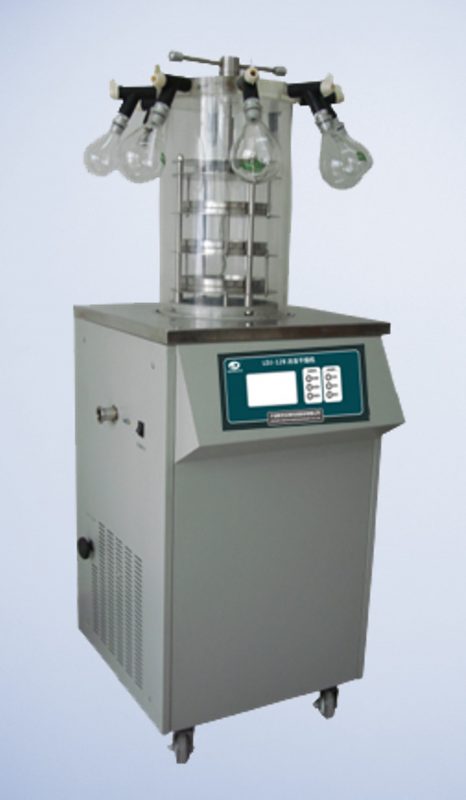Freeze Drying
Freeze drying, or lyophilization, represents a sophisticated low-temperature dehydration technique. This process involves subjecting a fully frozen sample to vacuum conditions, facilitating the removal of water or other solvents directly from the solid state, bypassing the intermediate liquid phase. The preservation of the sample’s biological, chemical, and structural attributes is upheld through the gentle treatment afforded by the inherently low temperatures.
Our utilization of premium freeze-drying methodologies encompasses the sublimation of both water and organic-based solvents, catering to a diverse array of sectors such as pharmaceuticals, the food industry, technology, and medical applications. Irrespective of the industry, the samples undergo thorough dehydration and subsequent sealing, thereby extending shelf life for storage or transportation purposes, all while safeguarding the original properties intact. Through our meticulous freeze-drying processes, we ensure the sustained integrity and longevity of your valuable samples, facilitating enhanced preservation and utility across many industries.

The apparatus keeps frozen samples under vacuum and traps the released moisture and volatile contaminants at -70°C and effectively dry anything at room temperature. This is extremely useful when handling heat sensitive organic materials, biological, nutraceutical, food, and medical samples.
For pharmaceutical industry, we use freeze drying to preserve the samples. The samples are well sealed after the removal of water contents, these samples can then be stored, shipped, and later reconstituted to its original form for usage. Active Pharmaceutical Product Ingredients (APIs) are synthesized and then freeze drying is used to achieve chemical stability for long period storage.
We use freeze drying within the food industry to extend the shelf life of food products while retaining the original quality and flavors. With conventional drying methods, food products such as seasonal fruits, vegetables, snacks, and coffee can degrade in quality while Freeze-drying operates at low temperature, so it results in the highest quality of foods by preserving structural integrity, flavors, color, taste, and other essential components. Berries, chocolates, bars, meat products, coffee, snacks.
Various other chemical syntheses involve freeze-drying to make more stable products, or easier to dissolve in water for later use. It is also required in medical fields for samples that are heat-sensitive, such as proteins, enzymes, and amino acids.
Applicable sample matrices

Seasonal fruits and vegetables

Chocolate bars

Nanomaterials

Meat products

Proteins, Enzymes

APIs

